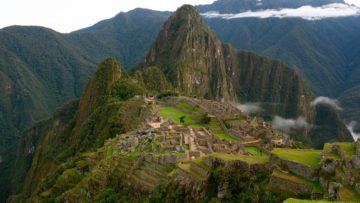Barbara Kennedy in BBC:
 In the darkness of her small bedroom in Peru’s Sacred Valley of the Incas, Sara Qquehuarucho Zamalloa packed her bag, thoughts racing: Would the weather be good? Would the team be friendly? Would she encounter park rangers with bad attitudes toward women? Would her mum, who suffers from chronic pain, be okay while she was gone?
In the darkness of her small bedroom in Peru’s Sacred Valley of the Incas, Sara Qquehuarucho Zamalloa packed her bag, thoughts racing: Would the weather be good? Would the team be friendly? Would she encounter park rangers with bad attitudes toward women? Would her mum, who suffers from chronic pain, be okay while she was gone?
She pushed aside the ruminations. She was headed out the next morning as an assistant guide on the Inca Trail, the precipitous pathway leading to the famous 15th-Century Inca citadel of Machu Picchu. She loved the job. It paid more than anything else she could be doing, and, perhaps most importantly, it empowered her in Peru’s patriarchal society. Knowing she could tackle the Inca Trail – both physically and mentally – as a guide made her feel like she could accomplish anything she set her mind to. She double checked to make sure she had her guiding ID and her water bottle, and ensured her pack was not too heavy (every kilogram counts on the trail), then went to say farewell to her mother in the house’s other room. Zamalloa slipped her mother some money, noticing how their roles had changed since childhood, and crawled into bed for six hours of solid sleep. She always slept well the night before a trek.
Zamalloa’s boldest hope as a child in the village of San Martin, located in the cloud forests high above the Amazon jungle, was to become an administrative assistant, a job that in Peru would have landed her in a male-dominated office with no hope of upward mobility.
More here.
